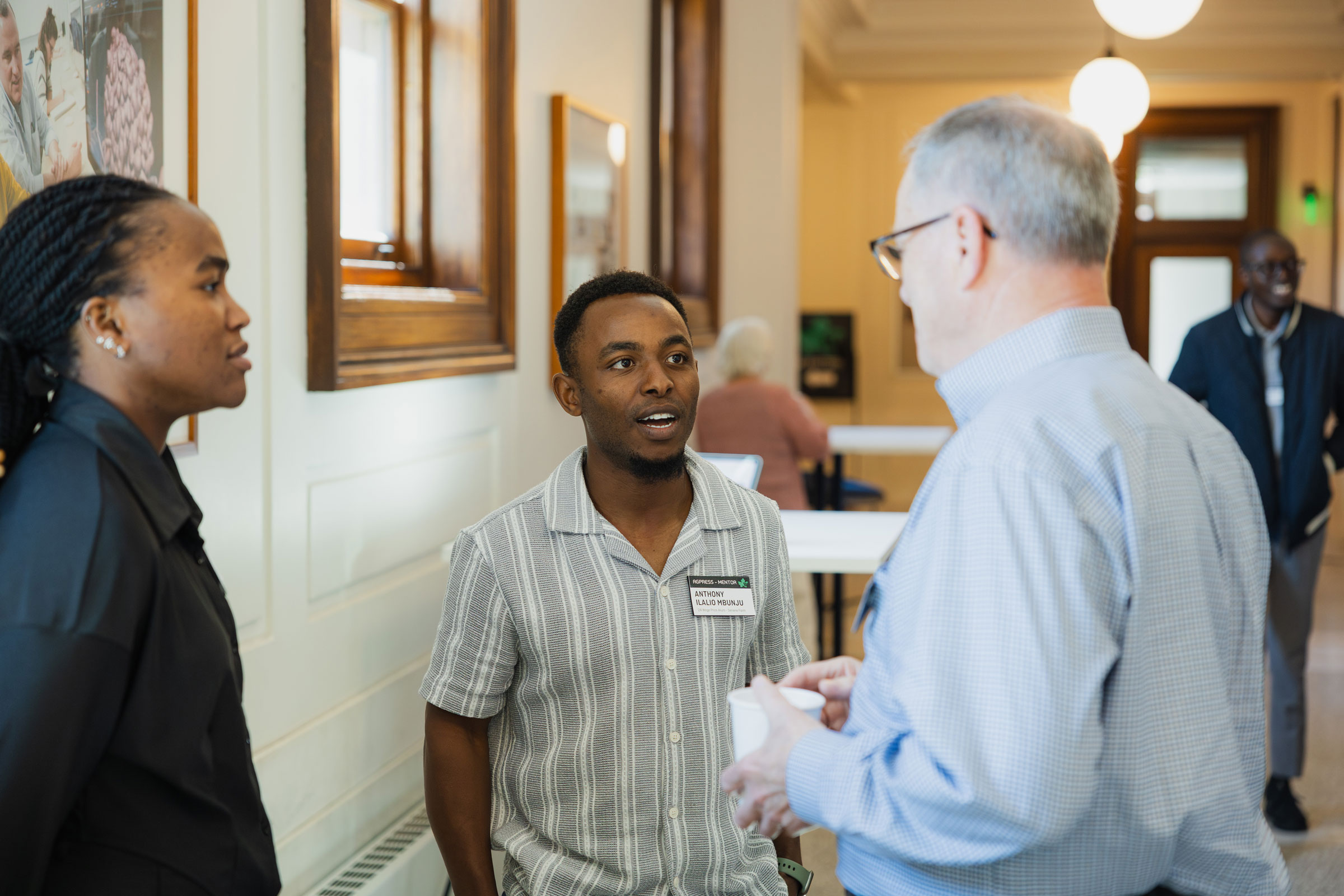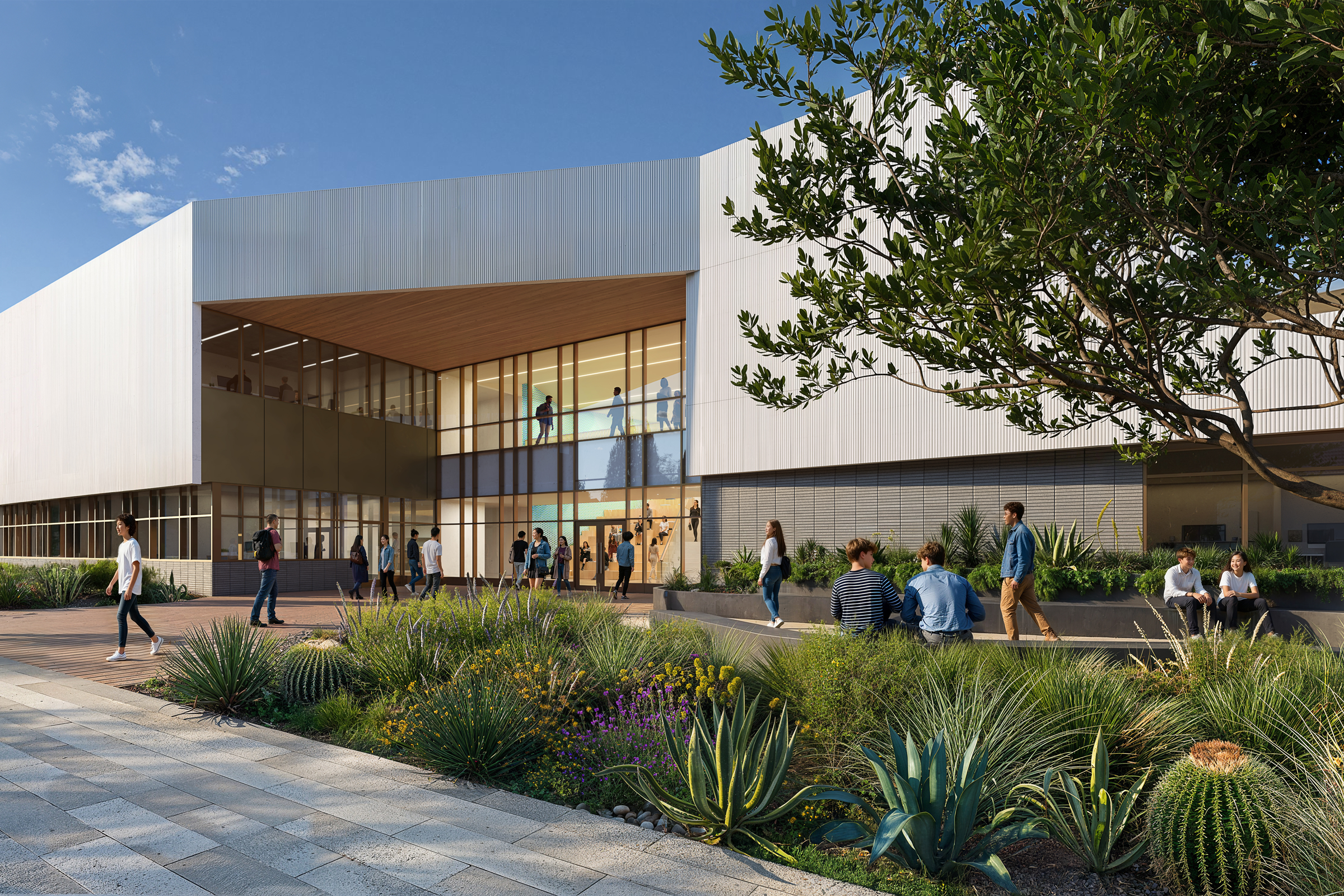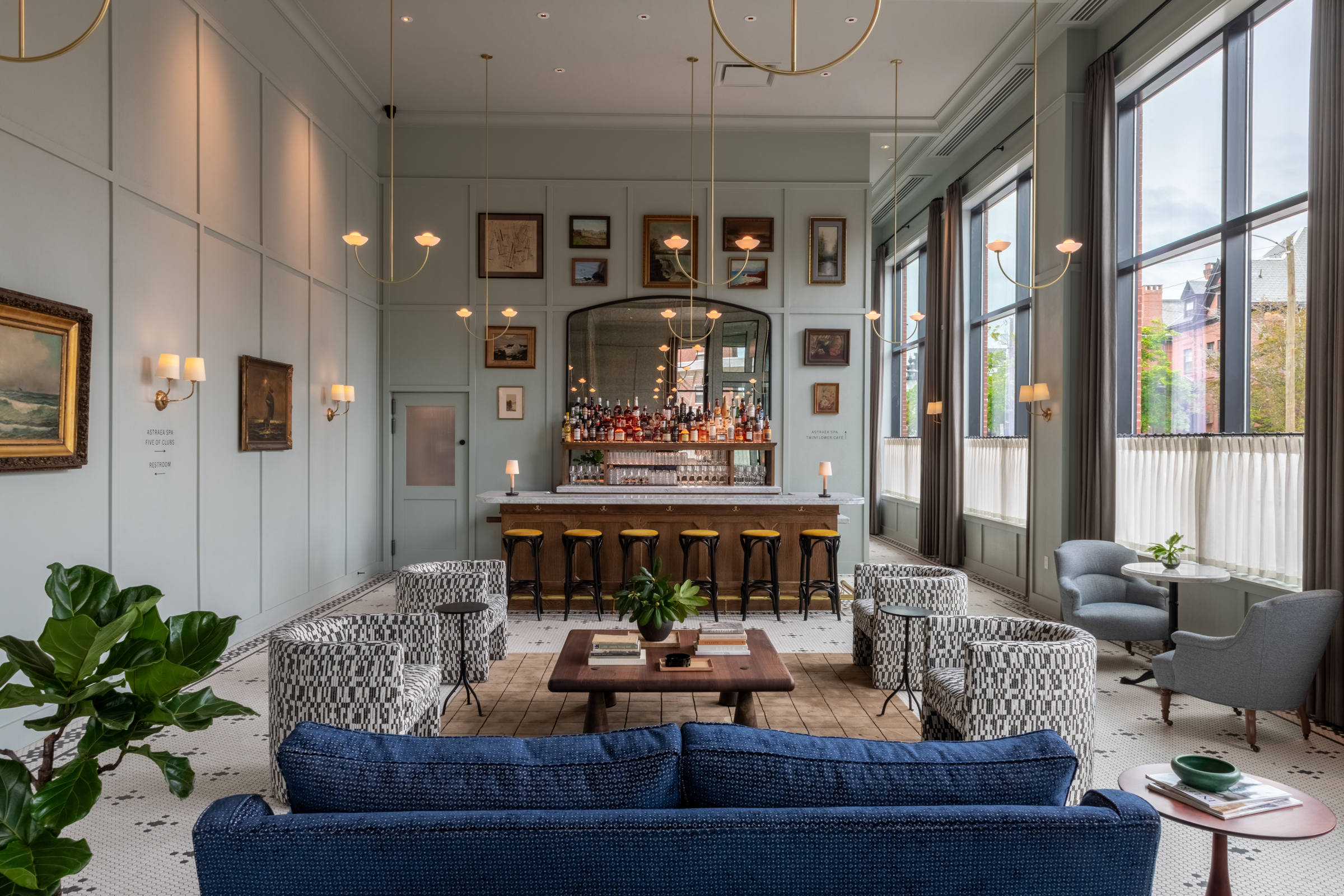Story at a glance:
- The Wege Prize is a renowned annual international student competition that awards bold ideas in sustainability for the future on a global stage.
- This year’s winning team developed a system of integrating mealworm farming with maize flour production to create protein-enriched flour to abate malnutrition, including repurposing agricultural waste into compost.
Over the past 12 years interest from African students and universities has steadily risen for the Wege Prize, the renowned annual international student competition that awards bold ideas in sustainability for the future on a global stage. From one African university in 2016 (the competition’s first international year) to colleges and universities in more than 15 African countries (including Rwanda, Uganda, Nairobi, and Kenya), design solutions from the African competitors have focused largely on challenges related to agriculture, food insecurity, and environmentalism.
The Wege Prize is organized by the Wege Center for Sustainable Design at Kendall College of Art and Design of Ferris State University (KCAD). It inspires multidisciplinary collegiate teams all over the world to collaborate across fields of knowledge and institutional and geographic boundaries to design and develop solutions to real-world systemic problems like food insecurity, environmental harm, and climate change in ways to promote a circular economy. The top three teams share a total cash prize of $65,000.
To date Wege Prize has engaged more than 1,700 higher education participants from 68 countries around the world, including 60 finalists and winning teams from Africa.
The 2025 Wege Prize top five finalist teams represented eight countries, including three from Africa. The five-person teams advanced through the competition’s unprecedented pool of 90 initial teams from 31 countries, with finalist teams coming from Costa Rica, Tanzania, Zimbabwe, Rwanda, Kenya, Hong Kong SAR, Spain, and India, as well as educational institutions based in the US, Costa Rica, Tanzania, Rwanda, Kenya, England, and Spain.
Why Africa, and Why Agriculture?
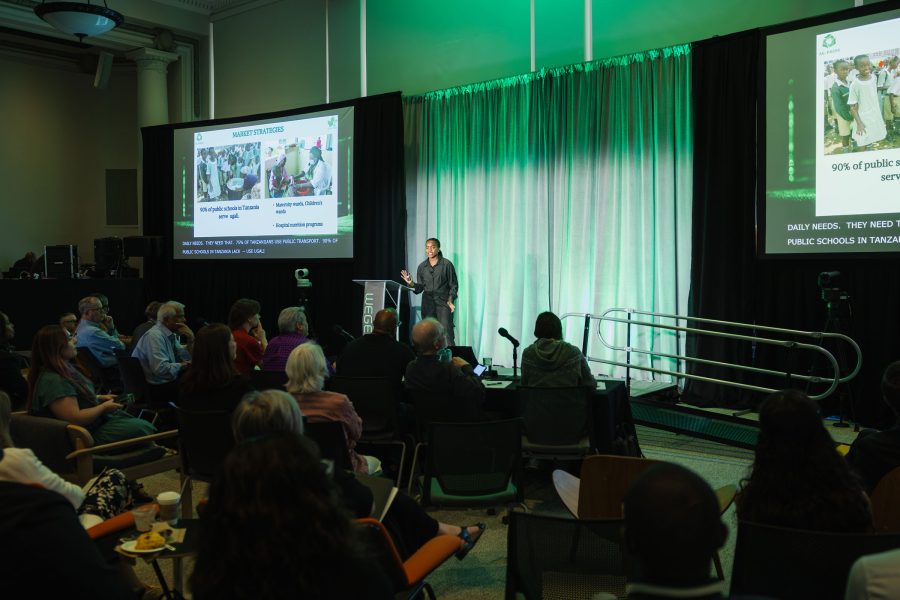
Photo courtesy of Wege Prize, KCAD
Agricultural challenges are a serious concern in many African nations, pointing to agriculture and food insecurity as top concerns among the countries’ rising generation. More than 38% of Rwanda’s population lives in poverty, according to Rwanda World Food Programme data, and nearly one-fifth of the population is food insecure. Nearly one-third of the country’s children under 5 has chronic malnutrition.
The Global Economy says that while 51.4% of Rwanda’s land is fit for growing crops, this seemingly high rate is small in terms of the population’s density. Yet the country’s food insecurity is not only due to available land fit for growing crops but also issues of drought, conflict, and economic hardship.
“Student teams from Rwanda have been well-educated in the circular economy, and they come across as highly motivated, creative thinkers,” says Colin Webster with the Ellen MacArthur and a core Wege Prize judge. “Their project ideas show a real awareness and understanding of rural issues and the power of the planet to provide solutions to problems that artificial chemicals have failed to address.”
Interest from Student Teams
The Wege Prize has experienced deep interest from student teams from EARTH University in Costa Rica, which has strong ties with Africa. Among the debut teams, EARTH University’s student team included teammates from schools in Uganda and Kenya through the support of the Kolschowsky Family Foundation and the Mastercard Foundation, both key partners in Uganda. More than 39 EARTH students have participated in the Wege Prize in years since.
The Rwanda Institute of Conservation Agriculture, as supported by The Howard Buffett Foundation and the University of Nebraska, is another significant Wege Prize participant—including a winning team in 2024—with connections to EARTH University.
Wege Prize leadership has seen that students, when building their interdisciplinary teams, connect to high school colleagues studying in other disciplines at different universities. The successful teams have clear connections to the local issues they address, bringing the necessary human-centered process to design their solutions.
The 2025 winning team, Agpress, included students from EARTH University in Costa Rica, North Dakota State University in the US, and the Institute of Finance Management in Africa. The team devised an environmentally sound system of integrating mealworm farming with maize flour production to create protein-enriched flour to abate malnutrition, including repurposing agricultural waste into compost.
Education, Inspiration, and Innovation
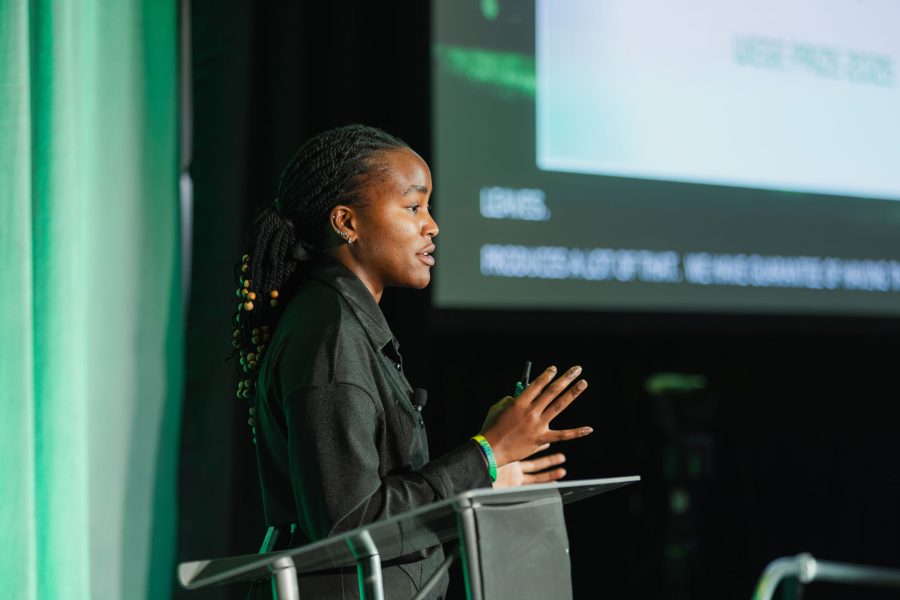
Photo courtesy of Wege Prize, KCAD
Designed as an educational experience, the Wege Prize is formatted into four phases, including feedback and inputs from expert judges to help student teams refine their designs throughout the competition’s nine-month program.
From the competition’s inception the Ellen MacArthur Foundation (EMF) has been involved with many African universities and businesses and been represented by Wege Prize judges, including founding judge Colin Webster, a learning content manager with EMF. Webster and his judging colleagues were later joined by Jo Williams, circular economy learning consultant with EMF.
The competition is focused on regenerative, restorative, and circular solutions to complex system problems focused in the communities of the student teams. When EMF visited Kigali, Rwanda, in 2022 as part of a learning program they were running, there were institutions in place, and courses being taught in universities, in support of the circular economy, Webster says. “Rwanda felt like a welcoming place for the circular economy, so it is no surprise to me that we’re seeing Wege Prize entries from there,” he says.
“Africa has an opportunity to leapfrog some of the global north’s sunk costs in linear systems,” he says. “We’re seeing particular focus on the biocycle both in terms of Wege Prize entries for Africa, in particular, and Rwanda in general, and in the circular economy space as a whole.”
Merging circular and collaborative design strategies is what uniquely defines Wege Prize competition, with the program’s diverse pool of judges providing feedback to the student teams diversified by colleges and disciplines in ways that value the iterative, test/try/test process of design.
“Create relationships with people who don’t think the same way you do,” says Skot Welch, principal and founder of Global Bridgebuilders and a Wege Prize judge. “You want heterogeneity in your relationships. Some of the best innovations you have will come from doing something completely different. Continue to broaden you discipline circle.”

